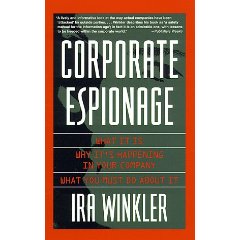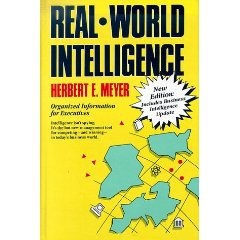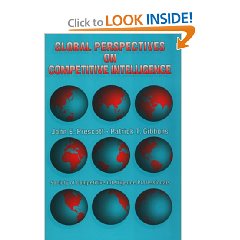Review: Corporate Espionage–What It Is, Why It’s Happening in Your Company, What You Must Do About It
4 Star, Crime (Corporate), Intelligence (Commercial)Review: Searching for the Spirit of Enterprise–Dismantling the Twentieth-Century Corporation Lessons from Asian, European,
4 Star, Best Practices in Management, Consciousness & Social IQExcellent airplane book. Articulates concerns about business schools that disdain real business, for managers that count money instead of making it, and for governments that are complacent about the lack of an entrepreneurial culture within their business ranks. His general approach is to deconstruct companies into smaller units where the management can be close to the actual value-creation, there are simpler more honest relationships, and there is a combined sense of pride and urgency that increases the momentum and productivity of the group.

Review: The Fifth Discipline
4 Star, Best Practices in ManagementMost helpful would be a new edition of this book, but one that places fully half the book's emphasis on identifying the obstacles to reform and learning, with each obstacle then addressed from both a top-down and a bottom-up perspective.
9-11 demonstrated that the theory of this book is badly needed within the ultimate “learning” community, the U.S. Intelligence Community. Even after 9-11, the leadership of that community refuses to admit it failed, and refuses to propose or acknowledge the substantial changes recommended by over 15 books–a huge critical mass–recommended by the Council on Intelligence. CEOs of multi-billion dollar corporations might choose to reflect on how best to combine the lessons from this book, which are valuable, with the lessons from how a $30 billion a year tax-payer funded community can refuse to change.










